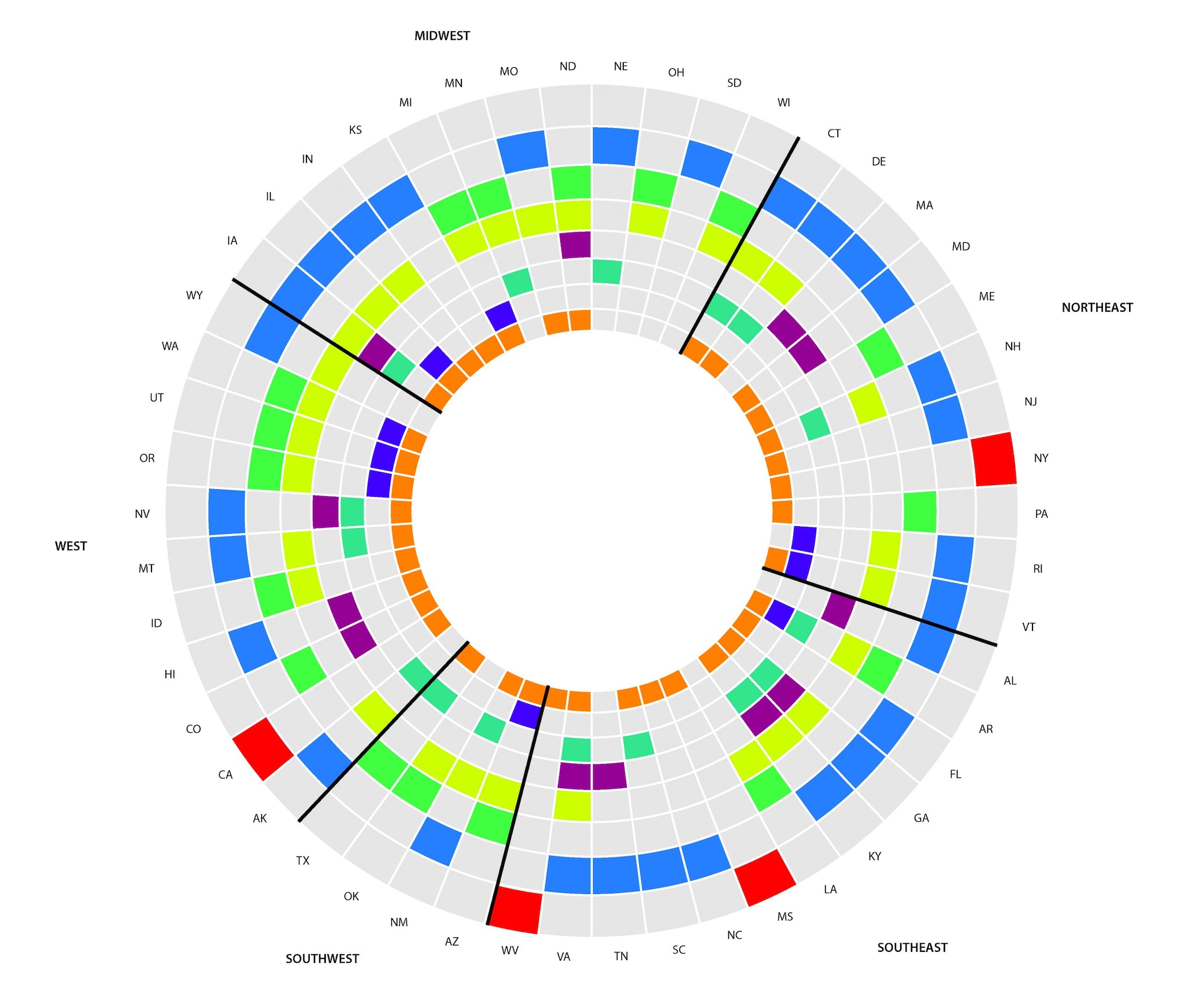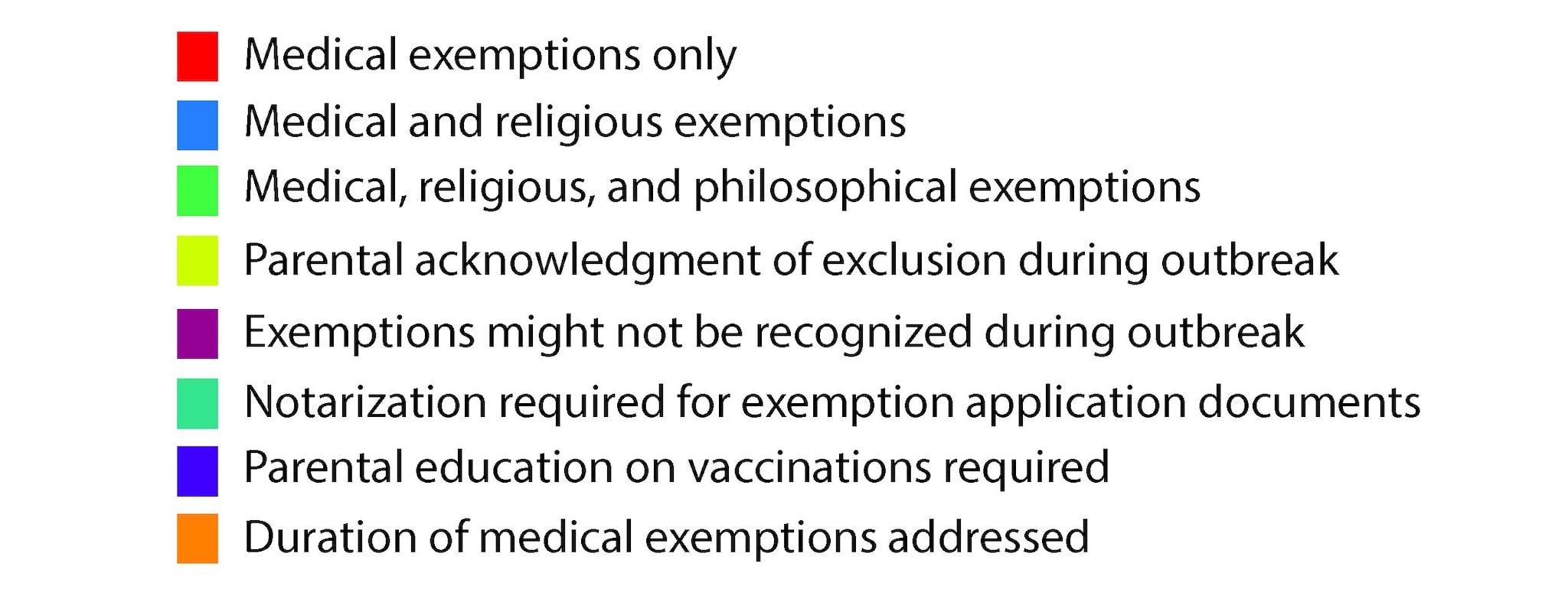Vaccination Laws
CDC works closely with public health agencies and private partners to improve and sustain immunization coverage and to monitor the safety of vaccines. One tool used to maintain low rates of vaccine preventable disease is vaccination law. State vaccination laws include vaccination requirements for children in public and private schools and daycare settings, college/university students, and healthcare workers and patients in certain facilities. State laws also affect access to vaccination services by determining whether providing vaccinations to patients is within the scope of practice of certain healthcare professionals. The Public Health Law Program provides selected resources for public health practitioners and their legal counsel on state vaccination laws.
State Healthcare Worker and Patient Vaccination Laws
Healthcare facilities across the country are increasingly requiring healthcare workers to be vaccinated for certain diseases in an effort to reduce outbreaks of vaccine-preventable diseases. In some instances, facilities are establishing these requirements due to mandates in state statutes and regulations. These PHLP menus examine state healthcare facility vaccination laws for the following vaccine-preventable diseases:
- Hepatitis B
- Menu of State Healthcare Facility Hepatitis B Vaccination Laws
- Influenza
- Menu of State Ambulatory Care Facility Influenza Vaccination Laws
- Menu of State Hospital Influenza Vaccination Laws [PDF – 758 KB]
- Menu of State Long-Term Care Facility Influenza Vaccination Laws
- Measles, Mumps, Rubella (MMR)
- Menu of State Healthcare Facility Measles, Mumps and Rubella (MMR) Vaccination Laws
- Pertussis
- Menu of State Healthcare Facility Pertussis Vaccination Laws [PDF – 368 KB]
- Pneumococcal disease
- Menu of State Ambulatory Care Facility Pneumococcal Vaccination Laws
- Menu of State Hospital Pneumococcal Vaccination Laws [PDF – 308 KB]
- Menu of State Long-Term Care Facility Pneumococcal Vaccination Laws
- Varicella
- Menu of State Healthcare Facility Varicella Vaccination Laws [PDF – 390 KB]
All states require children to be vaccinated against certain communicable diseases as a condition for school attendance. In most instances, state school vaccination laws expressly apply to both public schools and private schools with identical immunization and exemption provisions. The Public Health Law Program has conducted an assessment of state statutes, regulations, and state health department policies (collectively referred to as “laws”) regarding school vaccinations. This assessment is a 2019 update of state vaccination laws originally collected in 2015 and updated previously in 2017.
View State School Immunization Requirements and Vaccine Exemption Laws [PDF – 790 KB]
State law not only establishes exemptions for school vaccination requirements, but also establishes requirements regarding the exemption application process. This graph, with 2019 data, highlights selected attributes of school vaccination exemption laws, which are reviewed in the Public Health Law Program’s assessment (linked above).


Immunization information systems (IIS), or vaccine registries, are computerized databases that record all immunization doses administered by participating providers residing within a given geopolitical area. In general, when healthcare providers administer a vaccine, they enter information about the patient and the vaccine into the medical record and report to an IIS database that a health department administers. This assessment includes state statutes and regulations (collectively referred to as “laws”) governing IIS collected in 2020.
State Immunization Information System Laws—Demographic Data Collection [PDF – 341 KB]
The Latest in Vaccine Policies: Selected Issues in School Vaccinations, Healthcare Worker Vaccinations, and Pharmacist Vaccination Authority Laws
This article identifies and discusses changes and trends in select state vaccine policy issues developing across the US that can affect rates of vaccination. Barraza L, Hoss A, Schmit C. Journal of Law, Medicine & Ethics 2017;45:16–9.